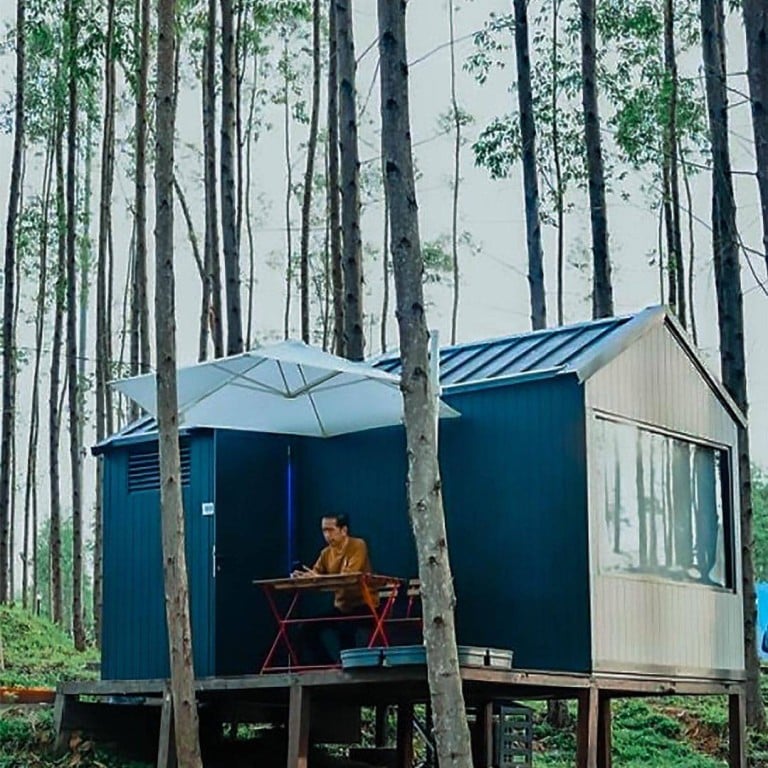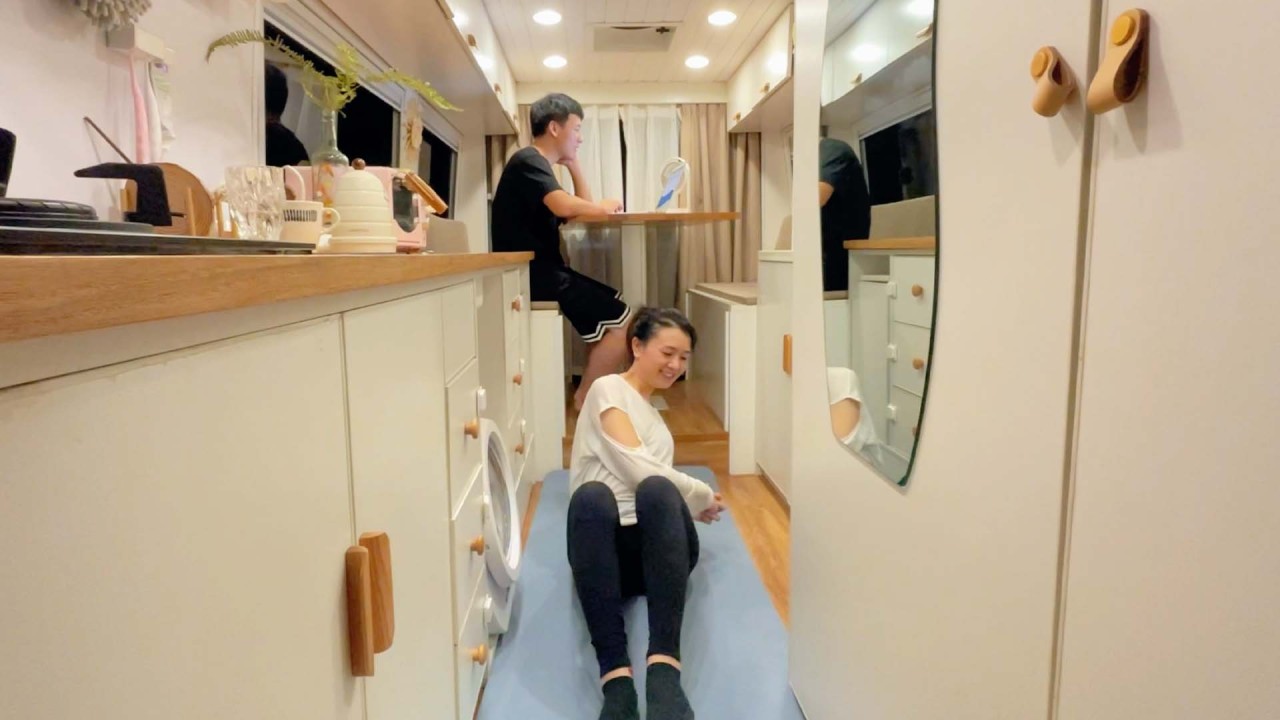
Sleeping pod, outdoor cabin start-up Bobobox, backed by Li Ka-shing, eyes capsule hotel business in Japan, glamping venture in US
- Bobobox wants to deploy its sleeping pods and cabins in two of the world’s most developed lodging markets, says co-founder Antonius Bong
- The company, founded in 2018, is backed by Horizon Ventures, the private investment firm of Hong Kong’s best-known tycoon
The start-up, backed by Hong Kong-based Horizon Ventures, was founded in 2018 to provide accommodation to the budget segment and the solo female traveller category, Bong said. The business started with initial capital of 5 billion rupiah (US$320,280).
The Bobopod offers solo travellers accommodation akin to Japan’s famous capsule rooms. In particular it aims to serve the niche market of single female travellers looking for budget accommodation without sacrificing safety, convenience and hygiene.
“Our products are not just for the Indonesian market,” Bong said. “We see how the solutions can be replicated in many different parts of the world and so we are looking into international expansion as well and trying to attract international investors trying to expand to different regions and to see where the next footprint of Bobobox will be.”
“We’re seeing the more developed countries like Japan and the US have the regulatory frameworks that will allow us to grow and scale the business quickly,” he said. “For example in Japan, they have regulations for capsule hotels, while in the US there are also regulations specifically for cabins.”
“Until now, the capsule hotels in Japan have always been perceived as a solution for the male and older market,” he said.
“Typically these capsule hotels are for people who missed the last train home or those who go out drinking at the bar and they can’t go home so they sleep in a capsule hotel. But it has never been perceived as a solution for the frequent business travellers or solo travellers.
“And the price of accommodation keeps going up in Japan but people still like options.
“We see our product, with its large space and the king-size bed, air conditioning and privacy, as a solution not only for the late-night male and older generations, but our pricing will follow the local market price, which will be between 4,000 yen (US$26.85) and 6,000 yen per night.”
The US, meanwhile, has a mature camping market, with most campsites being more than 20 years old. He sees opportunity in the fact not many of them have fully embraced the digital age.
In 2023, the average occupancy rate for Bobopod in its home market was 82 per cent, while for Bobocabin it was 79 per cent.
“The breakeven point for each location is actually only 30 per cent, so a 60 per cent occupancy rate is considered good. But an 80 per cent occupancy will be outstanding and that is what we are aiming for right now for all our locations,” said Bong.
In the first nine months of 2023, the average occupancy rate of hotels in Indonesia was 49.2 per cent, an improvement from the annual occupancy rates of between 32.2 per cent and 47.6 per cent from 2020 to 2022, during the coronavirus pandemic, according to the latest report by Jakarta-based credit rating agency KRI.
KRI and property consultancy Cushman & Wakefield both expect a further improvement in hotel occupancy rates as popular international acts such as Ed Sheeran, Bruno Mars and Diana Krall are set to hold concerts in Indonesia, while sporting events including the MotoGP Indonesian Grand Prix are also lined up this year.
“The surge in traveller numbers is anticipated to persist into 2024, with several regions poised to match or even surpass the figures seen in 2019,” the KRI report said.
The positive outlook for the hotel segment in Southeast Asia’s largest economy has caught the attention of international hospitality players, with the Radisson Hotel Group recently announcing plans to open the 150-room Radisson Resort Anyer on a famous beach in Banten province, a two-hour drive from central Jakarta, in 2027.


